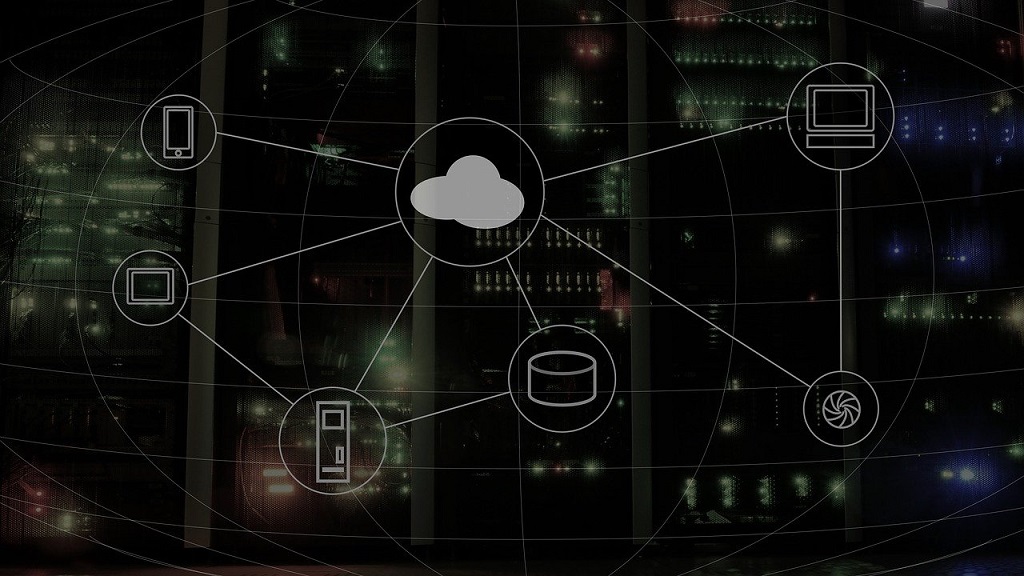Securing your organization’s cloud computing assets from threat risks is critical to minimizing downtime and preventing sensitive data from being compromised. With the help of a cloud security alliance certification, your organization can boost its cloud cyber defenses. Read on to learn more about how it works.
Breakdown of Cloud Security Alliance Certification
If your organization is wondering whether to invest in cloud security alliance certification, it helps to understand how and why certification can protect your sensitive data and cloud assets.
In this blog, we’ll explore:
- The various cloud security alliance certifications
- Benefits of the CSA’s cloud security assurance
- Cloud security best practices and how they mitigate data breaches
Working with an experienced cloud security partner will help you identify which gaps a cloud security alliance certification can fill to enhance your cloud security posture in the long term.
What is the Cloud Security Alliance?
The Cloud Security Alliance (CSA) establishes cloud security best practices to help secure cloud computing environments across industries. The CSA is a world leader in enhancing cloud security awareness. To achieve these goals, it leverages the subject matter expertise of its members, including industry practitioners, governmental entities, and other stakeholders.
The CSA combines this expertise and enables knowledge sharing via education, cloud security research, events, and various cloud security alliance certifications.
With its wealthy expertise, the Cloud Security Alliance is a go-to for education source on the most up-to-date cloud security standards. Obtaining a cloud security alliance certification can help your organization become familiar with industry-recognized best practices and implement them across your cloud computing and broader IT infrastructure.
Request a Free Consultation
What are the Cloud Security Alliance Certifications?
The educational resources and certifications offered by the CSA are sourced from its repository of vendor-neutral research. They can help improve cloud security and compliance postures, increasing cloud assurance for stakeholders like customers, clients, and business partners.
Categories of the cloud security alliance certifications include:
- The fundamentals certifications provide an overview of cloud security core concepts and best practices and how to apply them in real-world scenarios.
- The audit and compliance certification provides the knowledge required to successfully audit cloud computing infrastructure.
- The architecture certification provides in-depth expertise on deploying and scaling cloud computing architecture.
Let’s dive into how these cloud security alliance certifications can help optimize your organization’s cloud security:
Certificate of Cloud Security Knowledge (CCSK)
According to the Cloud Security Alliance, the CCSK certification is the “standard of expertise for cloud security.” Obtaining the CCSK certification, your team develops a cohesive understanding of securing data stored on the cloud. Becoming CCSK-certified means your team can deploy a robust and holistic cloud security program that keeps data safe from a wide range of cloud security threats.
Furthermore, the CCSK certification provides knowledge and training in the application of industry-recognized cloud security standards and best practices for:
- Identity and access management (IAM)
- Incident response and management
- Cloud application security
- Data encryption
- Emerging technologies security
Beyond these benefits, earning the CCSK certification also enables your team to:
- Upskill as cloud-certified professionals
- Gain technical proficiency in applying cloud security controls
- Exercise broader cloud security governance and management of technical controls
The exam for the CCSK certification is 90 minutes long; it contains 60 multiple-choice questions, with a passing score of 80%. Once purchased, applicants have two attempts to take the test within two years. You can prepare for the CCSK certification exam by self-studying or obtaining the Cloud Security Alliance’s training—or working with a third-party advisor organization.
As the foundational cloud security alliance certification, the CCSK also enables practitioners to pursue other secondary cloud security certifications such as:

Certificate of Cloud Auditing Knowledge (CCAK)
Auditing your cloud computing infrastructure is crucial to identifying gaps and vulnerabilities before they become full-blown threats. Considering the complexity of cloud computing risks, earning a Certificate of Cloud Auditing Knowledge (CCAK) will provide your team with the necessary training to audit cloud systems.
Unlike other IT audit certifications, the CCAK cloud security alliance certification equips IT professionals with the skills to deploy, manage, and audit cloud security controls—which is not typical for the average IT professional. CCAK certification is also credentialed by ISACA, a globally-recognized leader in technology education.
Becoming CCAK-certified also enhances the expertise gained from certifications like:
- Certified Information Systems Auditor (CISA)
- FedRAMP 3PAO Assessor
- PCI/DSS Qualified Security Assessor
- ISO 27001 Lead Auditor Credentials
The staff in your organization who can benefit most from the CCAK cloud security alliance certification include:
- Internal and external assessors and auditors
- Information security officers
- Vendors and partners
- Compliance managers
- Procurement officers
- Chief Privacy Officers (CPOs)
- Data Protection Officers (DPOs)
By taking the CCAK course and becoming certified, these professionals will gain expertise in:
- Differentiating between traditional IT infrastructure audits and those specific to cloud environments
- Conducting cloud security assessments using various tools and techniques
- Overseeing the establishment and management of cloud security governance policies and frameworks
- Navigating cloud compliance standards and requirements
- Leveraging cloud security controls to manage internal security
- Perform continuous monitoring to assess the effectiveness of cloud security controls
Similar in scope to the CCSK certification, the CCAK exam lasts two hours and comprises 76 multiple-choice questions, with a passing score of 70%. Test applicants only get one test attempt, which must be used within one year of purchasing the exam.
And, also like the CCSK certification, you can choose to self-study for the CCAK certification, enroll in special training offered by the CSA, or seek out third-party guidance. While there aren’t any prerequisites for the CCAK certification exam, test applicants will most likely require prior experience in IT audit, security, or cloud computing.
Certified Cloud Security Professional (CCSP)
The Certified Cloud Security Professional (CCSP) certification provides IT professionals with the expertise to secure IT assets on the cloud from threat risks.
By becoming CCSP-certified, your team will gain the advanced skills required to:
- Design and manage cloud security controls
- Secure sensitive data on the cloud
- Implement cloud security best practices to secure applications and cloud infrastructure
- Establish policies and procedures to oversee cloud security control implementation
The CCSP cloud security alliance certification is helpful for IT and cybersecurity leaders looking to apply cloud security best practices in their organizations. Cloud architects, engineers, consultants, analysts, and administrators can benefit from becoming CCSP-certified.
Certified Information Systems Security Professional (CISSP)
Although the Certified Information Systems Security Professional (CISSP) certification complements the fundamental cloud security alliance certifications, it is designed to equip IT professionals with the skills to oversee robust cybersecurity programs.
Professionals that can benefit most from the CISSP certification include those in roles such as:
- Chief Information Security Officer (CISO)
- Director of Security
- IT Director
- Security Systems Engineer
- Security Analyst
- Security Consultant
- Network Architect
Notably, the CISSP certification may not apply to the immediate needs of every IT professional or the current demands of their work. Prior to pursuing CISSP certification, your team should ensure that the skills obtained will directly apply to your organization’s security needs.

Certified Information Systems Auditor (CISA)
The Certified Information Systems Auditor (CISA) certification is offered through ISACA and complements the skills obtained from the fundamental cloud security alliance certifications.
As your organization’s cloud and business environments become interconnected, the CISA certification helps boost your team’s effectiveness when it comes to:
- Auditing information systems
- Implementing IT governance and management
- Developing and operationalizing IT systems
- Optimizing IT business resilience
- Protecting sensitive data environments and other critical IT assets
By becoming CISA-certified, IT professionals in your organization can effectively audit internal security controls—and not just those in cloud environments.
Advanced Cloud Security Practitioner (ACSP)
One of the more complex cloud security alliance certifications is the Advanced Cloud Security Practitioner (ACSP) certification. This specific certification provides professionals with the expertise to scale and deploy cloud security platforms in a large-scale enterprise setting.
Beyond learning how to build custom, secure cloud architecture, ACSP-certified practitioners learn how to manage enterprise-level cloud security and leverage DevSecOps and automation to secure cloud computing operations.
Obtaining the fundamental and complementary cloud security alliance certifications will help your organization build a robust and resilient cloud security infrastructure. Your team will then be well-positioned to mitigate cloud security threats and data breach risks.
Improving Cloud Security Assurance – CSA’s STAR Program
Besides the expertise your teams can gain from obtaining cloud security alliance certifications, you might also benefit from the CSA’s cloud security assurance program—the Security, Trust, Assurance, and Risk (STAR) Registry.
STAR is a repository of cloud standards and related principles currently implemented by organizations operating securely on the cloud. These controls are compiled from the Cloud Controls Matrix (CCM), a cybersecurity control framework designed specifically for the cloud.
Cloud service providers (CSPs) can submit the cloud security and privacy controls they implement in their offerings to the STAR registry, assuring their customers (CSCs).
The CCM comprises 197 controls across 17 domains to help support the audit and security needs of organizations that rely on cloud computing infrastructure.
These controls are also mapped to industry-recognized regulatory frameworks, such as:
- ISO 27001
- NIST SP 800-53
- AICPA TSC
- PCI DSS
- NERC CIP
The CCM requires CSPs and CSCs to share the responsibility for keeping cloud security controls up-to-date and maintaining secure cloud environments.
Organizations that fulfill the training requirements provided by the Cloud Security Alliance are listed as CSA Trusted Cloud Providers, meaning they have achieved industry-recognized cloud security competency and are committed to keeping their cloud environments secure.
Zero Trust Training (ZTT)
As cloud environments become increasingly complex, organizations must adopt more secure practices that minimize cloud security risks from impacting other sensitive digital assets.
Implementing a zero-trust approach means access to sensitive data environments is limited and can only be provided after verifying the authenticity of access requests. Complementing the cloud security alliance certifications described above, zero trust training (ZTT) takes the guesswork out of cloud security implementations.
By becoming ZTT-certified, your team will effectively:
- Implement a zero-trust approach and understand its benefits
- Prevent unauthorized users from accessing sensitive cloud environments
- Migrate your organization to a Zero Trust Architecture
- Separate sensitive cloud environments from untrusted networks
However, even as your organization applies the learning from the various cloud security alliance certifications, it is crucial to continuously implement cloud security best practices across your IT infrastructure. As the cloud environment rapidly evolves, your organization must remain prepared to face these risks and mitigate threats from impacting the rest of your digital assets.
Cloud Security Best Practices
As you implement the cloud security standards gained from preparing for and ultimately achieving cloud security alliance certification, these best practices will help mitigate cloud security threats from impacting your organization:
- Scan your cloud assets for threats – To detect cloud security threats early on and prevent them from spreading to other assets, it is best to scan the cloud environment with tools like:
- Cloud security scanners
- Penetration testing tools
- Manage security patches – If cloud assets are poorly patched or unpatched, they can become vulnerable to security threats. Establishing a system for patch management will help prevent your cloud assets from remaining unpatched for long periods and risking your cloud security posture.
- Evaluate firewall security – If your sensitive cloud environments are protected by firewalls, any malicious traffic that bypasses a weak firewall could compromise the security of the entire cloud infrastructure. The best access points to evaluate for firewall vulnerabilities include:
- Emails
- Web applications
- Remote endpoints
- Protect access to cloud environments – Using tools like identity and access management (IAM) or security information and event management (SIEM), you can identify attempts to gain unauthorized access to secure cloud environments. These tools can flag suspicious logins and notify your security teams of unusual access attempts.
The expertise gained from cloud security alliance certifications will help your organization apply cloud security best practices and scale up its cloud security infrastructure, especially when guided by a cloud security specialist.
Optimize Your Cloud Security
If your organization has cloud computing assets or operates in any significant way on the cloud, you may benefit from a cloud security alliance certification. Working with a cloud security partner will help you optimize cloud security controls and apply cloud security best practices across your organization. To learn more, contact RSI Security today!
